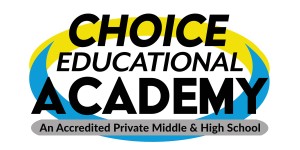
Plan for your future with our support
Applying to college is one of the biggest academic and professional decisions you’ll ever make in your life, and the key to a smooth-sailing stress-free application process is starting early.
Students often rush through the process and end up at their less-preferred institutions or miss out on the opportunity to attend their top-choice programs.
We can help you map out an entire timeline for college planning and preparation while also sharing resources related to FAFSA loan applications, deadlines, and other information that you’ll benefit from.
Reach out to us to know more about our consultation services for college planning today!
Ideal timeline for college preparation
- October – Pick out the school of your choice and differentactivities that you can participate in
- November – Plan a visit to a close-bycollege campus (i.e., sports games, exhibitions and displays, lectures and seminars, etc.)
- December – Think about and decide on a summer schedule(i.e., travel, summer school, volunteering, etc.)
- February – Set up an appointment with a college counselor to decide the following years’ subjects and classes
- July – Join activities such as summer camp, volunteer work, mentorship programs, summer school,or more
- August – Focus on summer reading and prepare for the new year
- October – Take the PSAT
- November ̵ Head over to local universities and college campuses once more (i.e., mixers, art exhibit, seminars, workshops, etc.)
- December – Come up with a new summer schedule(i.e., part-time work, take up pre-college or advanced placement programs, etc.)
- September – Meet with college representatives visiting CEA/ or attend college fairs in the area
- October – PSAT or SAT
- Visit local colleges (first official college visit)
- November – Practice ACT
- December – Review test results and develop a plan for college testing
- Create a summer plan (i.e., part-time work, internship, pre-college courses, etc.)
- January – Schedule a family conference with college counselor
- Commence preparation for SAT (if applicable)
- February – Commence preparation for ACT (if applicable)
- March – SAT (if applicable)
- Visit college campuses
- April – ACT (if applicable)
- Attend college fairs and Open Houses
- Start compiling a preliminary college list
- May – AP and IB tests
- June – ACT, SAT Reasoning and Subject tests (if applicable)
- July – Conduct college scholarship search via FASTWEB (if applicable) https://www.fastweb.com
- Visit college campuses
- Develop college list
- Review transcript
- Summer camp, pre-college program, part-time work, volunteer activity, etc.
- August – Complete the Common Application
- Complete your summer reading
- September – Meet with college counselor and review college plan
- Submit rolling admissions applications (if applicable)
- Finalize college list
- Meet with college representatives visiting CEA and/or attend college Fairs going on within the area
- October – Begin completing early college applications (if applicable) for EARLY DECISIONS
- Complete FAFSA
- November – Early Decision (ED) and Early Action (EA) deadline
- December – ED and EA results to applicants
- January – Regular decision deadline
- Mid-year reports submitted to colleges
- February – Avoid senior slump!!
- March – Regular decision results to applicants
- April – More regular decision results
- Admitted students visit colleges
- May – Graduation and National deadline for college enrollment
| Early Decision | Single Choice Early Action | Multi Choice Early Action | |
|---|---|---|---|
| Benefits To Student | Can ensure spot in chosen school before other have applied. | Can ensure spot in chosen school before other have applied. | Can ensure spot in chosen school before other have applied. |


